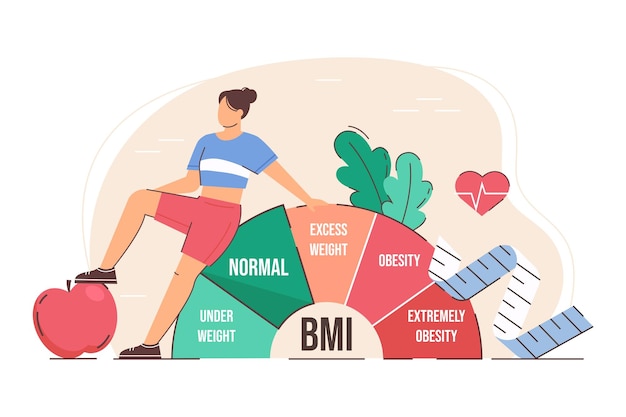
Insulin is a crucial hormone made by the pancreas that helps your body convert carbohydrates from food into energy. Its main job is to control blood sugar levels, which can become dangerously high without enough insulin. There are effective methods you can use every day to manage your insulin levels and protect yourself from high blood sugar.
Insulin plays a vital role in balancing blood sugar. It’s released throughout the day, but its levels spike when you eat. As a hormone that regulates fat, insulin helps store fat and keeps it from breaking down.
When insulin levels are too high, the body can become resistant to its effects, leading to serious health problems like cancer, heart disease, and obesity. Here are some tips to help lower your insulin levels:
**Cut Out All Types of Sugar:**
Sugar isn’t just what you might think—it comes in various forms, and all should be avoided if you want to lower your insulin levels. Eating sugar in any form can spike blood sugar, leading to increased insulin production. Studies show that eating candy can increase insulin levels by 31%, compared to a 12% rise from eating peanuts. Fructose, found in honey, table sugar, syrup, and agave, is especially likely to raise insulin. On the other hand, alternative sugars in your diet may help decrease insulin resistance and lower insulin levels.
**Opt for a Low Carb Diet:**
Carbohydrates cause insulin levels to rise more than fats or proteins. To balance blood sugar and manage weight, consider a low-carb diet. Research shows that low-carb diets can improve insulin sensitivity and significantly lower insulin levels, particularly beneficial for those with conditions like insulin resistance or polycystic ovary syndrome. One study found that low-carb diets could reduce insulin levels by 50% compared to those eating a more carb-heavy diet.
**Watch Your Protein Intake:**
The amount of protein you eat can impact insulin levels. High protein intake can boost insulin production, particularly among people with obesity who face insulin resistance, leading to further health issues. A study highlighted that obese individuals with insulin resistance saw their insulin levels double compared to those in normal health after consuming the same amount of protein. It’s important to monitor your calorie intake and understand which foods contribute to excess calories.
**Use Apple Cider Vinegar:**
Apple cider vinegar, known for its sour taste, can help lower blood sugar and insulin levels. Consuming it directly or adding it to meals, especially high-carb ones, can make it more effective. ACV can also curb appetite, helping you feel full sooner. For insulin management, try taking two tablespoons of apple cider vinegar daily.
**Add Cinnamon to Your Diet:**
Cinnamon acts as an antioxidant and is great for your health. This spice can enhance the taste of meals while offering health benefits like controlling diabetes by reducing insulin resistance. Studies have shown that cinnamon can increase insulin sensitivity and decrease insulin levels. Sprinkle it on foods like salads, soups, or rice pudding.
**Increase Soluble Fiber Intake:**
Soluble fiber is a great way to lower insulin levels. It absorbs water to form a gel-like substance that slows digestion, making you feel full longer and reducing appetite. This helps manage the rise in insulin that typically follows meals. Soluble fiber can also support healthy gut bacteria, which aids in improving insulin sensitivity. It’s also beneficial for weight loss.
**Avoid Refined Carbs:**
Cut back on refined carbs as they can quickly spike insulin levels and increase body weight. Refined carbs are connected to a higher glycemic index (GI), which means they raise blood sugar rapidly. Eating lower GI foods can help in controlling insulin levels and weight.
**Include Green Tea in Your Diet:**
Green tea is packed with antioxidants and can help manage blood sugar and lower insulin levels. It contains a compound known as epigallocatechin gallate, which can counteract insulin resistance. Drinking green tea, especially on an empty stomach in the morning, can enhance metabolism and energy levels throughout the day.
**Stay Active:**
Regular physical activity is crucial for managing insulin levels. An active lifestyle boosts metabolism, improves insulin sensitivity, and reduces symptoms of insulin resistance. Simple activities like walking, jogging, or workouts can help manage weight and insulin levels.
**Lose Excess Body Fat:**
Excess body fat, especially around the abdomen, is a leading cause of high insulin levels and resistance. Engage in exercises like cycling, jogging, or swimming to burn fat and improve overall health. Reducing body fat can significantly improve insulin sensitivity.
**Add Omega Fatty Acids to Your Diet:**
Omega fatty acids can enhance insulin sensitivity, particularly beneficial for individuals with obesity, PCOS, or gestational diabetes. Supplements containing omega fatty acids promote better health and help in managing diabetes and insulin levels.
Incorporate these methods into your daily routine to effectively manage your insulin levels and take control of your health.